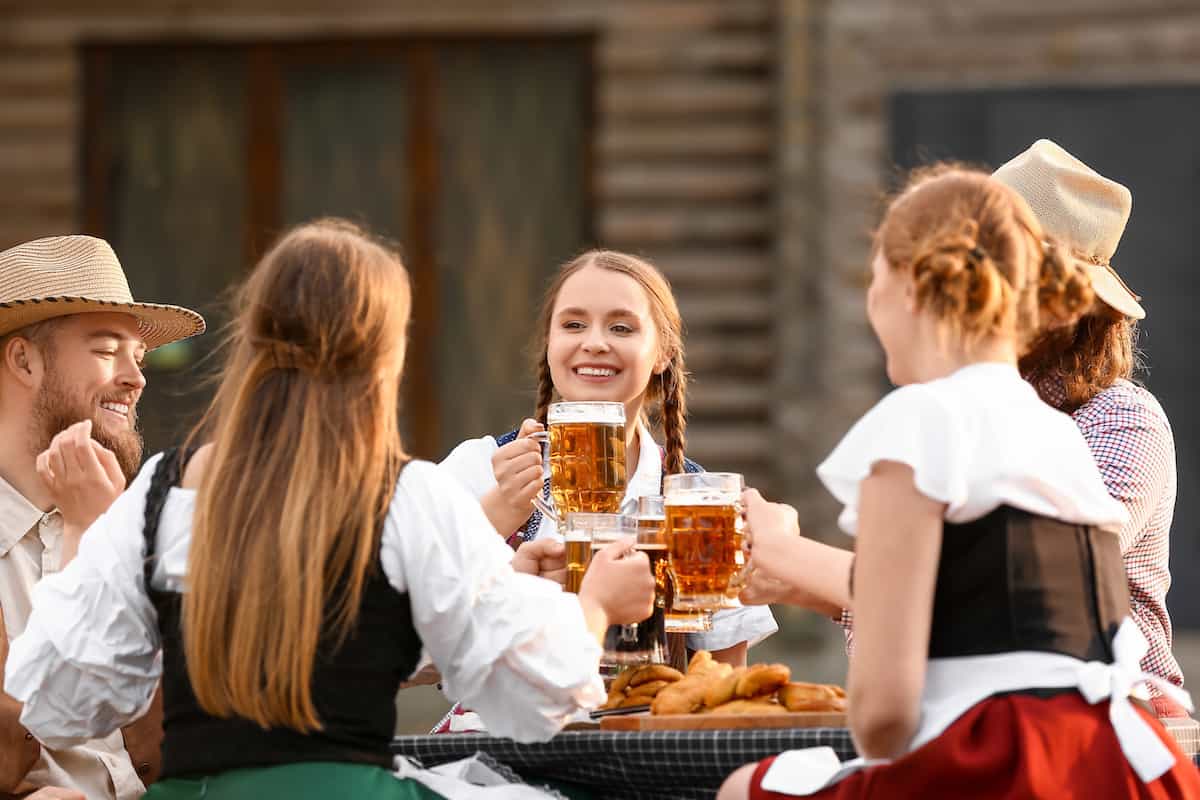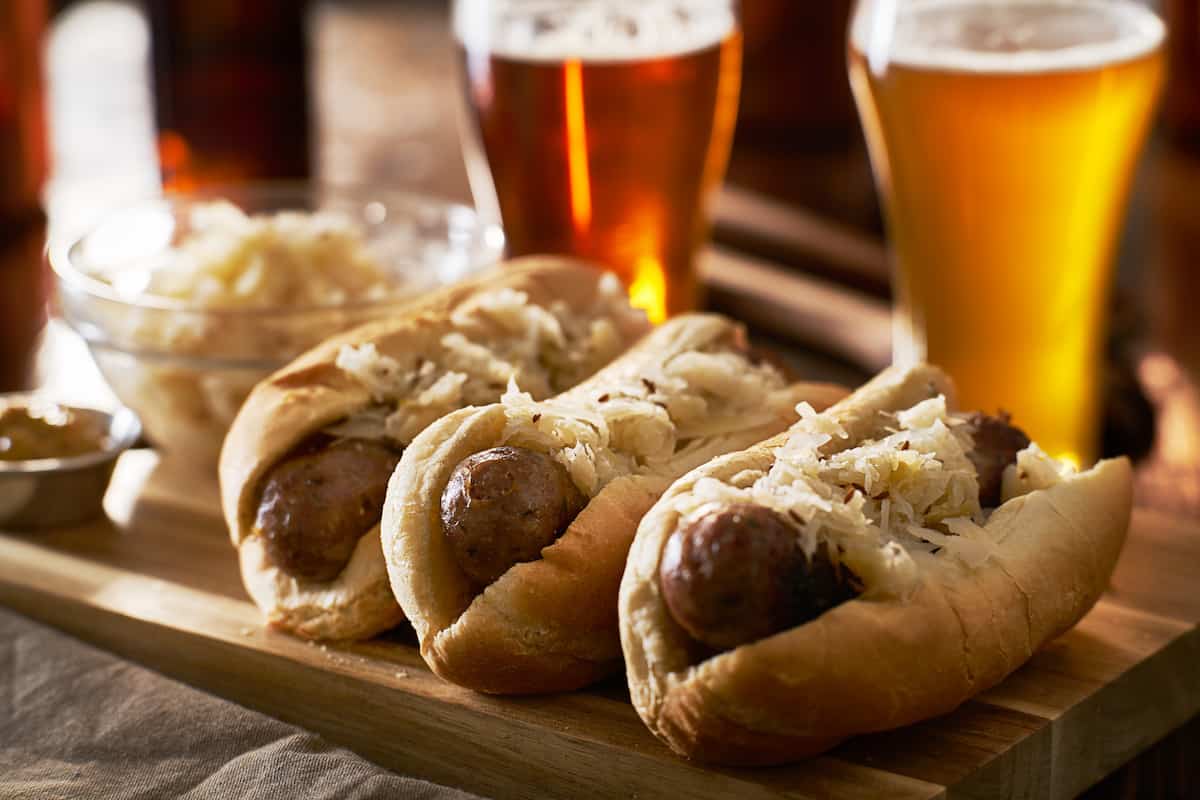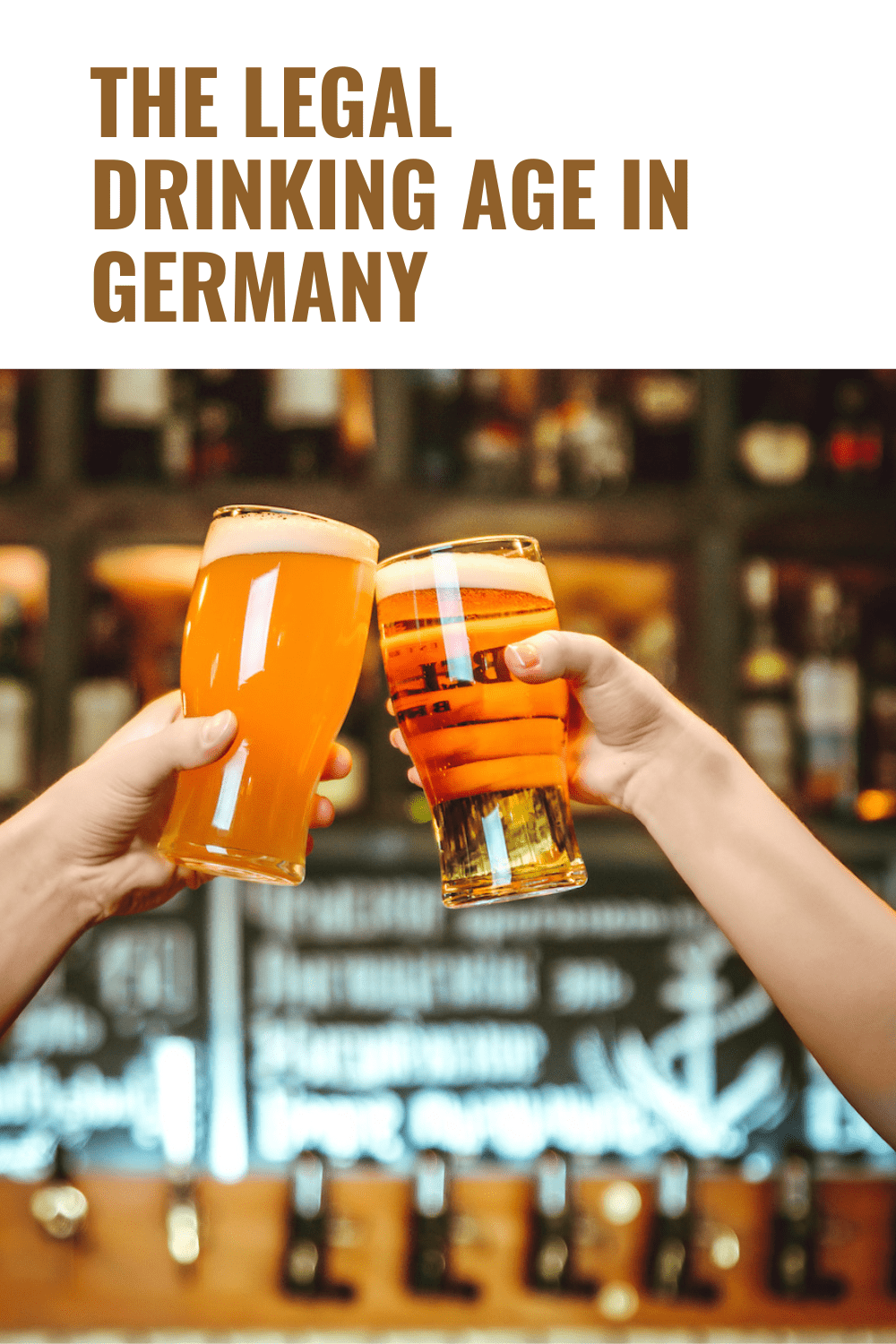You may be wondering about the legal drinking age in Germany.
Perhaps, you’re planning a family trip with teenagers or young adults. Or, you may be a young person embarking on an escorted tour, solo trip, or jaunt to Germany with friends.
Like much of Europe, attitudes towards drinking in Germany are fairly relaxed and more lenient than they are in the States. Alcoholic beverages are considered part of everyday life at home, restaurants, and bars. But, of course, countries vary in terms of the foods and drinks woven into their culture and the same holds true for Germany.
When people think about the drinking cultures of France and Italy, they’re likely to think of wine.

Reisling wine produced in the Mosel wine region
In Germany, mineral water is the most popular beverage consumed. Germans also enjoy drinking wine (Reisling is the country’s flagship wine although the country produces a variety of other excellent German wines.)
Beer rules in Germany
But clearly, beer rules in Germany.
It is the main attraction at beer gardens (beirgarten), at brewery tours, and at Oktoberfest, the world’s largest beer festival, which is held in Munich each fall and has been replicated around the world.
Even the German language is imbued with beer terms. The word bierernst (literally beer-serious) is used to describe someone who is too serious.
According to the German National Tourist Board (GNTB), when something ominous is in the air, Germans say “something is brewing.” And when something is hopeless, people say “hops and malt are lost.”
Wheat beer is even part of a second breakfast (hefeweizen) enjoyed in some parts of Germany.
An alcohol website jests that Germany is a “country that runs on beer the same way America supposedly runs on Dunkin’.”
The legal drinking age in Germany: Lower than you might think

Happy Hour at a German beer garden
The legal drinking age for beer, wine, and sparkling wine in Germany is 16 years old—one of the lowest drinking ages in the world.
That means that young people in Germany can drink beer and wine at age 16, two years before they become eligible for a driver’s license at age 18.
To drink or purchase hard liquor, young people must be at least 18 years of age.
What are the laws/rules governing drinking age in Germany?
Most alcohol laws in Germany focus on protecting young people as opposed to limiting or discouraging alcohol use entirely.
As a result, the country has adopted a graduated approach to drinking, based on age.
- At age 14, minors can consume and possess beer and wine (undistilled spirits) in public settings with a parent or guardian. (This is called begleitetes trinken, or accompanied drinking).
- At age 16, minors can consume and possess beer and wine without supervision by a parent or custodian.
- At age 18, young people are considered adults. They can consume and possess beer, wine, and sparkling wine as well as distilled spirits (liquor).
Access and availability to alcohol in Germany
No alcoholic beverages are allowed to be sold to youth under 16 years of age. But as noted above, alcohol laws in Germany are lenient and aren’t designed to keep young people over the age of 16 away from alcohol.
Drinking in public is culturally acceptable in Germany.
Some state (as opposed to Federal) legislation governs closing hours for bars and clubs, and establishes fines for breaking the law, but these vary from place to place. A number of states have entirely done away with governmental restrictions on opening or closing hours.
A limited number of private transportation companies prohibit the consumption of alcohol on trains. And occasionally, when teams at a soccer match are arch rivals, stadium management may decide to ban alcohol sales entirely and prohibit stadium entry by drunken patrons to maintain public order.
Good Friday and All Saints’ Day are examples of two religious holidays that are somewhat sacrosanct across the country because no public parties are permitted. However, even on those days, citizens can still purchase alcohol.
Germany does have strict laws regarding drunk driving. A first offense can result in a 500 Euro fine, a one-month license suspension, and two points on the individual’s driver’s license.
A driver stopped by the police can be subject to a blood test. According to German laws, the blood-alcohol limit for DUI is .5mg per ml of blood, the equivalent of two small bears.
Alcohol and public health in Germany
A 2019 survey of family practitioners and psychiatrists published in BMC Primary Care summarized data on the public health impact of alcohol use and abuse in Germany.
The authors concluded that “harmful alcohol consumption in Germany is a serious public health problem.” About 7.7 million adults in Germany can be classified as risky drinkers and about 1.8 million adults between the ages of 18–64 years are classified as alcohol-dependent.
Another study of young people between the ages of 12 and 25 in Germany, reported in the Journal of Public Health, that problem drinking among this age group is widespread. Male gender, age, smoking behavior, and depressive symptoms have been factors associated with problem drinking.
Can tourists bring alcohol into Germany?

People with beer celebrating Octoberfest outdoors
A person has to be 17 years of age or older to bring alcohol into the European Union from a non-EU country.
According to the rules of the EU, the quantities of alcohol permitted for entry by tourists include:
- 4 liters of still wine and.
In addition, they can bring:
- 1 liter of spirits over 22 % vol. (such as vodka or gin) or
- 1 liter of undenatured alcohol (ethyl alcohol) of 80% vol. (or over) or
- 2 liters of fortified (for example sherry or port) or sparkling wine.
Drinking age in Germany: The bottom line

Bratwurst and sauerkraut with beer
Germany offers a wealth of rich historical, cultural, and culinary experiences for travelers of every age. Some of these experiences include alcohol.
Before indulging, both parents and young people need to be aware of local laws and social mores as they would do when visiting any foreign country.
Based on the information provided earlier in this post, it is unlikely that anyone will look askance when young visitors over the age of 14 sample German beers and wines in restaurants with their parents.
In terms of brewery and winery visits, the age requirements for access vary as do the rules about whether or not young adults need to be accompanied by a parent or custodian. Thus, it’s best to check the specific property’s website or call them before you plan a visit.
In terms of Oktoberfest, after 8 PM, children and teens under the age of 16 can only remain on site if accompanied by a parent or adult custodian. Sixteen-year-olds may be required to show proof of age before they are served alcohol.
Another reminder: Wherever you are, in Germany or elsewhere, never drink and drive.
Also on MoreTimeToTravel.com
READ MORE
Save to Pinterest!!




